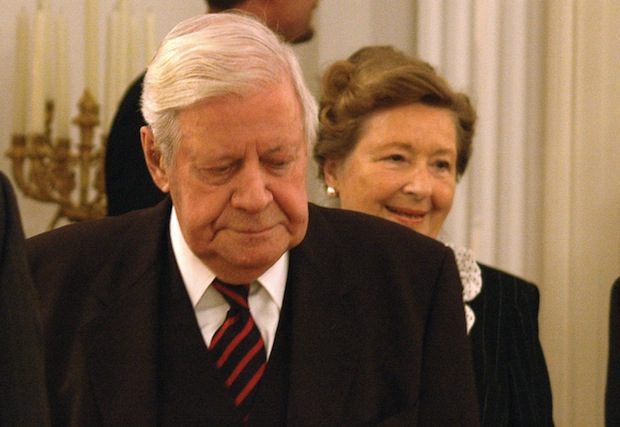The Life Helmut Schmidt Led

The former German chancellor and publisher of Die Zeit died this week at 96. I learned a lot about him from his obituary in his newspaper. Note this well:
Schmidt was an interesting study on the difference between politicians and statesmen. He wasn’t interested in the fleeting well-being of his party or even that of his government or himself. He was focused on finding solutions and remaining true to his principles, beneath which everything else was subordinated. His adherence to the NATO Double-Track Decision, against both his own party and widespread public opposition, is just one example. Like few others, he was able to dissect problems with surgical precision, distinguishing the unimportant from the important, the effect from the substance, the emotional from the rational. That also made him confident on a personal level. There really wasn’t anything one couldn’t talk with him about. And when it came to his own weaknesses, particularly as he aged, he exhibited an Anglo-Hanseatic approach: nicely self-deprecating.
Periodically, he would look at the younger generation with benign condescension. For Schmidt — who was born just weeks after the end of the German Empire, experienced the Nazi period as a soldier and, subsequently, witnessed the establishment of German democracy — those born later often seemed maladjusted: no serious problems but all kinds of expectations, sensitivities and minor aches and pains. Up until a few years ago, he would frequently utter the following sharp-tongued sentence: “He hasn’t yet grown up.” And, as is often the case with verdicts that one finds particularly offensive, there was an element of truth to it. Or, he would say: “You can’t judge that. You didn’t experience it first-hand” — mostly in reference to war and the destruction it wrought. Once, I said: “Yes, and I am happy that I didn’t experience it first-hand. I think there can be different ways of growing up.” After that, he never uttered the sentence again. It was, after all, possible to contradict him, without him taking offense: yet another characteristic that separated him from most other politicians (and journalists). Those who feared him, and approached him with particular servility as a result, would be confronted in such a manner that they wanted to sink into the ground.
Is such a figure even possible in the West today? Serious question.
Subscribe for as little as $5/mo to start commenting on Rod’s blog.